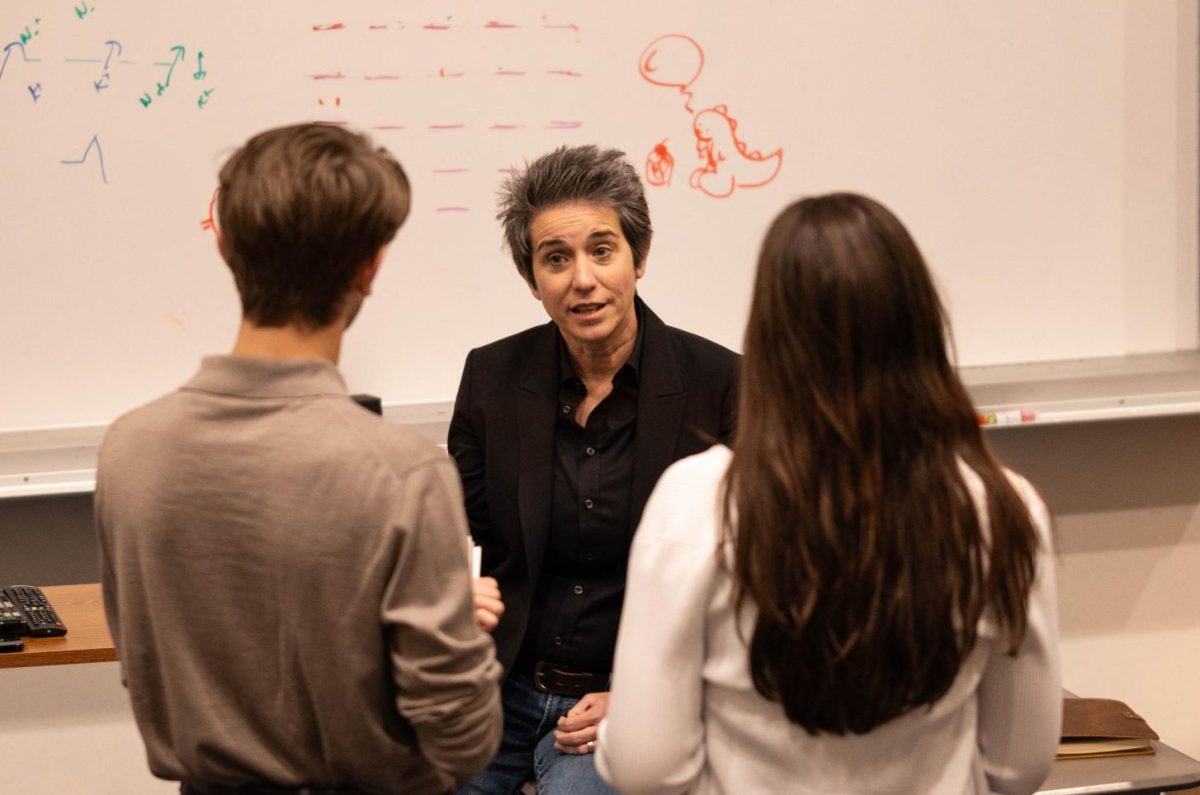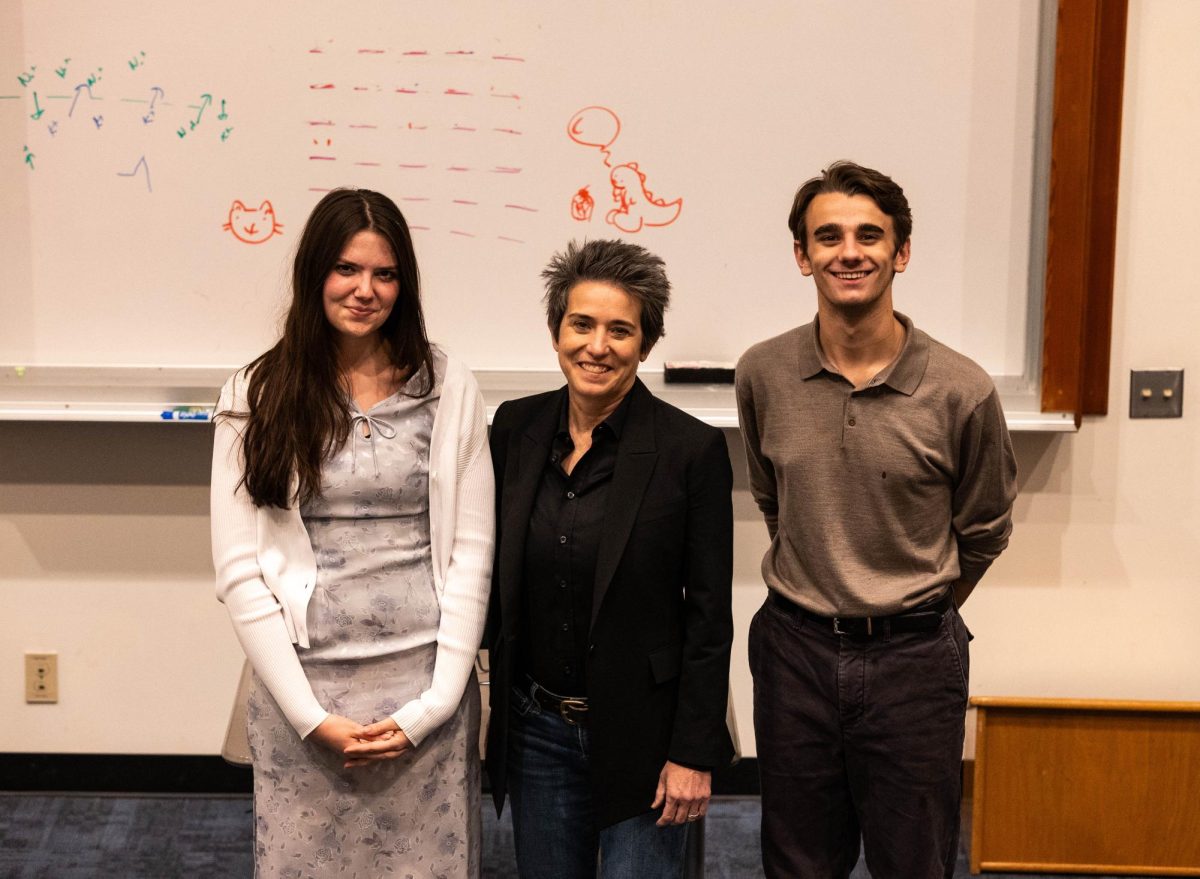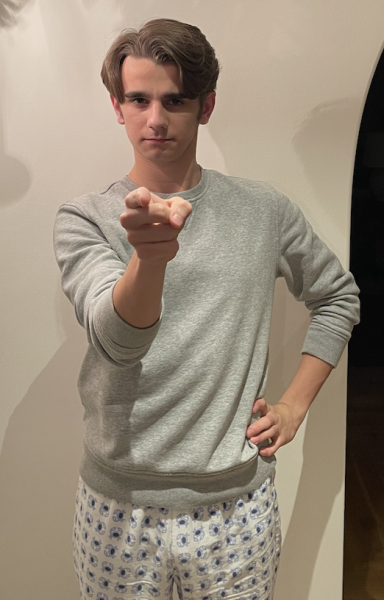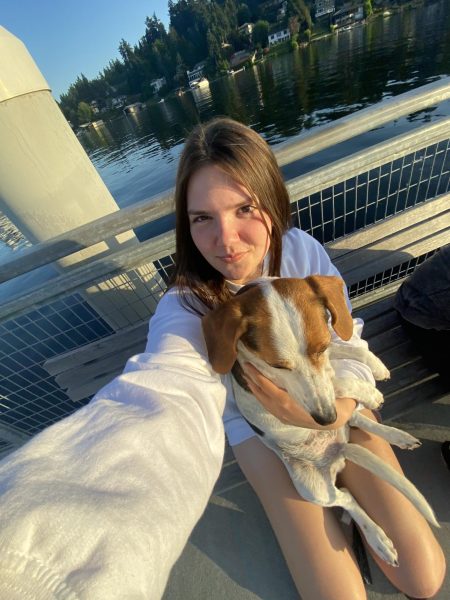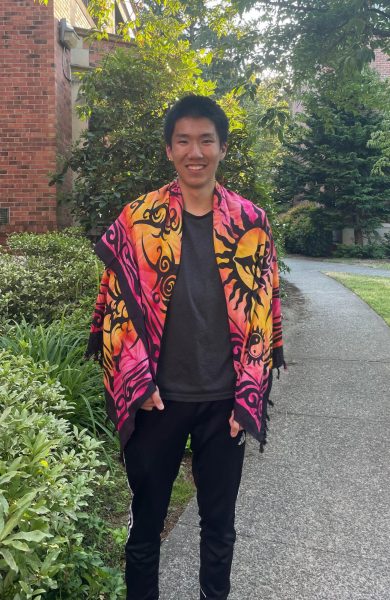On October 30th, less than a week before election day, Amy Walter, editor-in-chief of the Cook Political Report, came to speak with Lakeside School as part of the third annual Bernie Noe Endowed Lecture on Politics and Ethics. She participated in various activities throughout her day on campus: visiting with Ms. Piper’s Government, Politics, and Policymaking elective class, hosting a lunch with students, giving a speech at assembly, and continuing the discussion after in Kent Evans. The penultimate item focused on the changing dynamics of each campaign’s electoral base, especially related to age and gender. At the end of the day, Ms. Walter took twenty minutes to sit down with the editors-in-chief of the Lakeside Tatler as well as members of the Lakeside Leo to answer lingering questions about the media, the upcoming election, and the two’s relationship. Details of that interview are provided below:
Reagan R. (RR): Something that we’ve seen emerge out of Covid and something that is especially true nowadays for Gen Z-ers is that people feel a disillusionment with experts. Throughout Covid, there was a sense of: “Look at the numbers. The government is lying to you.” As we have more and more people distrusting authority and “the experts,” how do you as the Editor of the Cook Political Report see its role? How do you as a news source re-establish authority and credibility with your readers who are inclined and have been told by other people not to trust you?
Amy Walter (AW): We’re an interesting hybrid in terms of what it is that we do. We were founded 40 years ago, so some of what it is is that we have a history to what we do, and that’s helpful: we didn’t just emerge in this recent time. And we’re a hybrid in that we aren’t traditional journalists; we’re analysts. And our job has always been to cover campaigns, and it has been our mission from day one and it’s our mission now: we haven’t changed our mission even as the world around us and the technologies that define it have. What I hope that people take away from that is that our work speaks for itself: we’ve been doing this for a long time, we have sources who we talk to that are Democrat and Republican — those sources talk to us because we have been fair, because we have been accurate, and because we have decided that our mission is our mission, and that’s been immutable.
The thing about trust is that it is hard to build it, and people are rightfully skeptical of so many institutions. So the only thing you can do, and this is true whether you’re doing my job or doing your job and writing down what you are, is that you follow through on who you say you are and that people know who you are because of your actions. And there are going to be times when people disagree with you, but if they feel like you have treated them fairly and respectfully, it’s much harder for them to lose trust in you. But that’s a thoughtful question.
RR: Going off the topic of audience— and you also referenced this in the assembly earlier—what we’re seeing is people’s inclination to more segregated news sources. You have, for example, Trump going on the Joe Rogan podcast, so he has that audience [and] you have people getting a lot of their information from Tiktok and social media platforms. All in all, I think people are more inclined to extremist and very specialized news platforms. In your role as an analyst, how do you see the Cook Political Report functioning in this system where a lot of revenue is generated from loyal people who are going to these extremist platforms, and how do you maintain a neutral standpoint away from both financial and political pressures?
AW: Two things. One, we are a privately-held company, and we are very small — purposefully so. Because what we count on is our subscribers, and we don’t have advertising. Part of that is that same thing of not feeling like to generate revenue you have to do something that might compromise the integrity of your product, or that people would assume that, because they may think, “You’re only saying this because so-and-so is paying to advertise in your publication.” So not having that is very, very helpful. […]
But to your question about where we go from here in terms of speaking to these audiences, you’re exactly right. I think about that for the future and […] your generation is getting almost all of its information from social media — it is not coming from traditional sources. At some point, you guys are going to be voters, and beyond voters, the decision makers. Where and how people get their information is going to change the way both that campaigns are covered and how candidates talk to voters. And so I think what we’re seeing this year is really an acknowledgment from the candidates. As I said the candidates themselves, I don’t think any of them have appeared on a Sunday show. But the fact that they’re on podcasts tells you everything you need to know about where campaigns know or think the voters are and where campaigns are going to go into the future.
Now, how we follow that is a really big piece of all of this. Some of that is being able to be fluent in who some of these news sources are and being open to that. I think so much of the challenge, especially for older folks who have been covering politics for a long time, is that there is a certain way that you do things, there are certain rules that you follow (e.g., newspapers endorse, and you go sit down with “60 Minutes”), and those rules are getting upended, not just because we have norm-breaking candidates but because of where people are getting their information. So you have to meet voters where they are and you need to meet news consumers where they are.
We have a presence on different platforms. We don’t have TikTok, but we do have Instagram and X and Facebook as well as podcasts — we have all those different ways. But we started as a literal printed publication that started off in the mail; it was a big deal when we got to the internet. Now, we also recognize that people don’t come to websites anymore so we have also been reaching them the way that they want information. We send them an email newsletter. We send them updates. They can come and link to us on social media. But recognizing that it is changing is first.
Jackson B.: On the topic of candidate change, one of the things that we’ve seen in this election — on the Republican side, it has played out since 2016, on the Democratic side it’s been a lot more recent — is a significant change in rhetoric. The Republican party platform more closely reflects the exact verbiage of Trump (e.g., putting “Make America Great Again” on the cover), and it seems they have obviously fallen in line around him as a candidate. But at the same time, Kamala Harris has also taken the Democratic party in a surprisingly moderate direction in terms of taking stances on fracking and so forth that are a lot more untraditional to the contemporary Democratic party. In your role as an analyst but also someone who has followed elections for a long time, do you foresee these being long standing changes to the parties, or are they more exceptional to this election?
AW: I guess there are two ways to see this. Every four years, the candidates have an opportunity to form their own vision and version of what the party should be and what the party stands for with that document [Party Platform]. Traditionally it has been the document at the convention, but if they win, then their policies can be put into action. And so, if you’re looking at a party and what its values are, you can look at that document or you can say, “What did you do when you were actually in office?” And this is where Harris is taking some positions that may be more moderate. However, when she was part of an administration, it took policies that weren’t as moderate, specifically on the border. Now she’s talking about supporting a border bill that would require a lot of things that would be more conservative than Democrats have been for a long time on this issue. At the same time, during her time as a policymaker, the — I mean, the President did this, but she’s part of his administration — President put out policies that rolled back many of the border policies and decisions made by Trump. You have to look at both of those things.
Still, it is pretty clear that the Republicans and Trump coalition are increasingly looking to voters that take more liberal positions, especially on things like gender, sexuality, reproductive care, immigration, and on cultural issues than the party has ever been. And with Trump, Republicans are taking policies on trade, foreign policy, and others that are very very different from where the Republican party has ever been. That’s part of the deal, right? Parties themselves are supposed to change. Their priorities can change with the candidate, with the times, with the voters, and what they want to see out of their nominee.
This interview has been edited for clarity.

